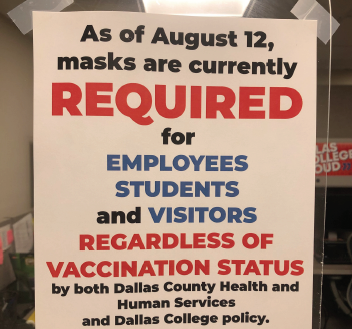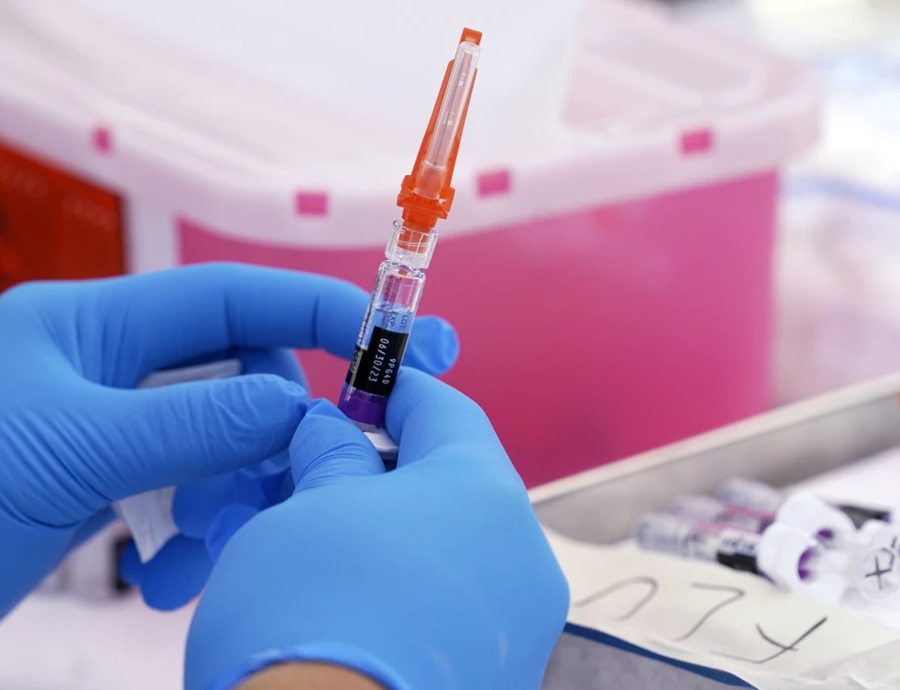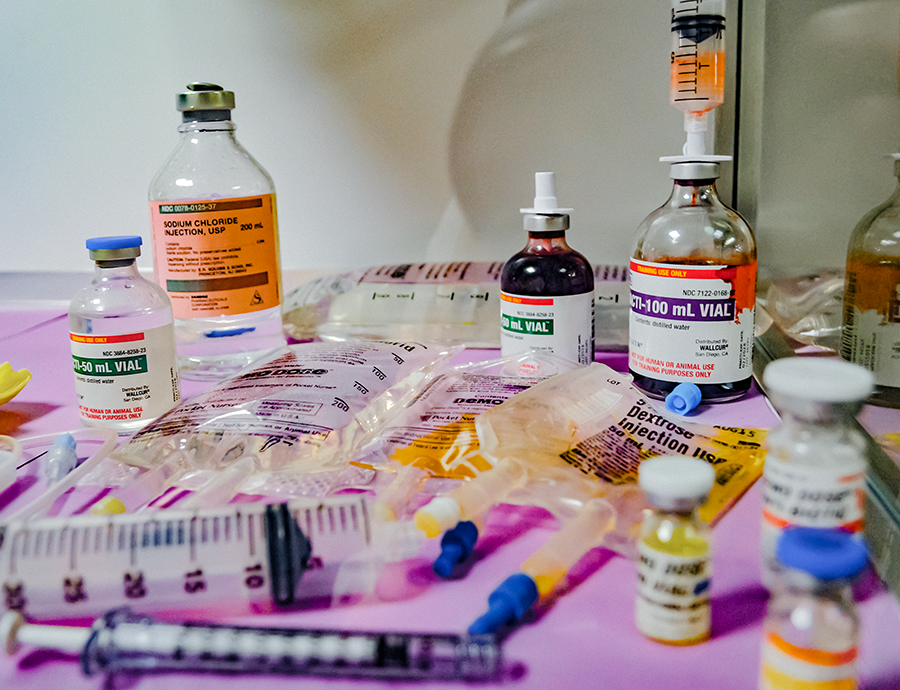Alex Ortuno
Interim Editor
Officials report that the number of new COVID-19 cases is on the rise in Dallas County even as global numbers decline.
According to a spokesperson for Dallas County Health and Human Services, the COVID-19 assessment risk has been raised to orange as cases begin to rise once again.
This comes as the Associated Press reports that the subvariant of the omicron variant known as BA.2 is more contagious and has become the dominant strain in the United States.
While a new variant of the virus has become dominant and cases rise, Richland Campus biology professor Jill Buettner said that mutations of the virus are to be expected and are not out of the ordinary.
“There’s always a chance because a new variant is just a new mutation. It’s just another word for mutation, so a new variant which viruses accumulate mutations, no matter what virus,” said Buettner.
Even though mutations are expected, they can bring changes in how the virus transmits and what it does to the infected hosts.
“So this is not a new concept for COVID but certainly there’s always a chance that there could be a new mutation that somehow renders that virus more lethal, more contagious, more aggressive. We’ve already seen some of that,” said Buettner.
“There’s always a chance that something very aggressive could mutate. However, it’s more likely that it’s just going to keep kind of petering out,” said Buettner.
Buettner stresses that when cases of people testing positive rise, it is important to see if hospitalizations from the virus are changing as well.
“I would say you’re having an uptick of cases but my question would be ‘Are you having an uptick of hospitalizations,’ that would be more of my concern,” Buettner said.
According to a study from UT Southwestern Medical Center about the future projections of COVID-19 for the Metroplex. Hospitalizations have overall declined slightly in the region but due to recent trends, hospitalizations could return to higher levels by early fall.
Buettner believes that with the new semester beginning, more people will test positive for the virus.
“There may be an uptick of cases as people start going back to school. Certainly anytime people get together there’s going to be more [of a risk of] transmission,” she said.
Buettner said that people should still practice caution and allow people to practice safety standards that they are comfortable with, even if COVID-19 has become less of a problem than in previous years.
“If you live with someone who is immunocompromised, if you are for any reason worried about it, I think it’s a healthy mindset to allow people who want to wear masks to understand that people may not want to be close, to be able to just be tolerant of whatever somebody’s preferences are,” said Buettner.
As for Dallas College, an email was sent to employees on Aug. 15 advising caution about COVID-19 and monkeypox. That email went out just after the U.S. Department of Health and Human Services declared monkeypox a public health emergency.
According to the World Health Organization, monkeypox is transmitted from person to person by contact with lesions, bodily fluids, respiratory droplets and contaminated materials. Buettner said that people should be careful as physical contact with infected lesions can spread the disease.
Even though the omicron subvariant is more contagious, Dallas College will remain open, monitoring the situation closely, according to Megan Deal, senior administrative assistant to the vice chancellor of operations at Dallas College.
“We will continue to engage in normal instruction, including face-to-face, online and hybrid course options at the present time. Masks are now recommended but not required at Dallas College locations and events. We continue to closely monitor the positive cases within Dallas College as well as the surrounding county and will make any changes to our mask recommendation, as necessary, and in accordance with Dallas County Health and Human Services and Centers for Disease Control guidelines,” Deal said.
For more information about monkeypox, visit the following:
Dallas County Health and Human Services:
www.dallascounty.org/departments/dchhs/monkeypox.php
Centers of Disease Control and Prevention:
www.cdc.gov/poxvirus/monkeypox/index.html
Texas Department of State Health Services:
www.dshs.state.tx.us/IDCU/disease/monkeypox/Monkeypox/













